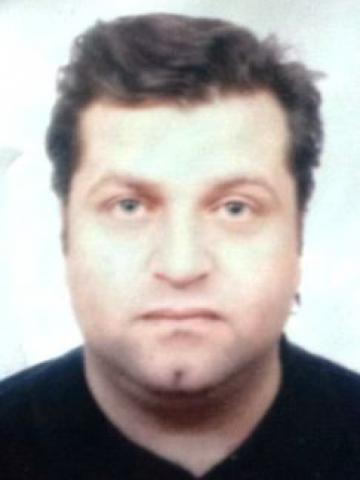
On 23 May 2015, Alkarama sent an urgent appeal to the UN Committee Against Torture (CAT) asking it to urgently intervene with the Morocco authorities so they take interim measures to stop the extradition to Saudi Arabia of Abdul Rahman Alhaj Ali – a Syrian asylum seeker who had fled persecutions in his country in 2014 to take refuge in Morocco with his wife and his children – based on a 2007 arrest warrant which had already been executed and is no longer justified.
On 30 October 2014 at around 8pm, Abdul Rahman was arrested by some police agents near his house in the coastal city of Kenitra, 45 km north of Rabat, under an international arrest warrant issued by Saudi Arabia, due to a personal conflict between him and his old Saudi kafil (guardian) while he was working in the country.
Several years before, Abdul Rahman had started a company in Saudi Arabia where he had worked until 2007. As provided for by Saudi law, the entrepreneur had to register the company and all its assets in the name of his kafil in order to carry out his business in the hotel services. In 2007, he had left Saudi Arabia to return to his country where, a few months after later, he had been arrested and prosecuted for breach of trust on the basis of a complaint filed by his kafil in Riyadh accusing him of embezzling a large sum of money. The latter had, however, issued a certificate recognising Abdul Rahman's absence of debt or obligation towards him. The Syrian authorities had then refused to extradite him but had sentenced him to three months in prison.
During the uprisings in Syria, Abdul Rahman, who was then residing in the countryside of Damascus, had actively participated in the peaceful protests that broke out in the country, reason why he was the subject of active investigation from the Syrian security services. Arrested by the air force intelligence service in April 2013 and held incommunicado under torture for three months, he decided to leave Syria to seek asylum in Morocco, where he settled with his family in 2014.
Today this father of three is again prosecuted for the same acts and faces extradition to Saudi Arabia on the basis of an arrest warrant that has already been executed and is no longer justified. Against all expectations, on 31 December 2014 the Rabat Court of Cassation upheld the Saudi demand rendering its verdict in favour of Abdul Rahman's extradition despite his first conviction in Syria, in violation with the Riyadh Arab Agreement for Judicial Cooperation between the Kingdom of Morocco and 20 other Arab states, including Saudi Arabia.
The judgment of the Court of Cassation being final, Abdul Rahman risks to be extradited to Saudi Arabia as soon as the Prime Minister signs the extradition decree, a formality that may occur at any time. The court's decision to extradite Abdul Rahman is a serious violation of Morocco's international commitments, in particular of Article 3 of the Convention against Torture (UNCAT), to which Morocco acceded in June 1993, which prohibits any State party from expelling, returning or extraditing "a person to another State where there are substantial grounds for believing that he would be in danger of being subjected to torture."
It seems clear that Abdul Rahman is likely to be a victim of severe torture and ill-treatment if he were to be extradited to Saudi Arabia where offenses against property are punishable by sentences of up to amputation of a hand for simple theft to the death penalty for armed robbery. Accused by his kafil of breach of trust on unsubstantiated charges, he therefore runs the strong risk of being sentenced to amputation or the death penalty. Today, Abdul Rahman, who has consistently claimed his innocence since his arrest expresses his dismay at what he describes as "the partiality of Moroccan justice."
By approving the extradition request of Saudi Arabia, the Kingdom of Morocco is violating its international commitments arising from its ratification of the Convention against Torture. In 2014, Alkarama had previously submitted to the Committee Against Torture (CAT) the case of Sayed Omar, an Egyptian citizen member of the Freedom and Justice Party, who was facing extradition by the Moroccan authorities to Egypt, where he ran the risk of being torture if not condemned to death .
Alkarama is extremely concerned by this new decision of the Moroccan courts to extradite a person particularly exposed to the risk of torture in the requesting State. It is imperative that Moroccan judges become aware of their great responsibility in ensuring respect for the fundamental rights of all, including of foreigners on their territory, and take into account the international commitments of the Kingdom in the field of human rights – particularly the Convention against Torture and the International Covenant on Civil and political Rights (ICCPR) – when imposing such decisions, to ensure that the respect of those commitments always comes first.
Pour plus d'informations ou une interview, veuillez contacter l'équipe média à media@alkarama.org (Dir: +41 22 734 10 08)
he therefore runs the strong risk of being sentenced to amputation or capital punishment
